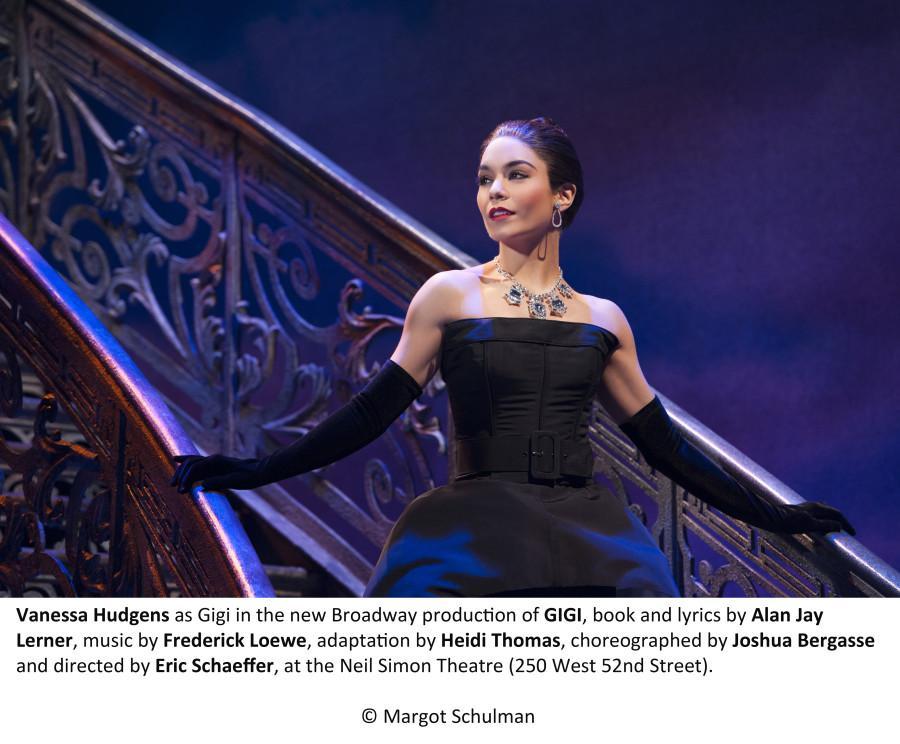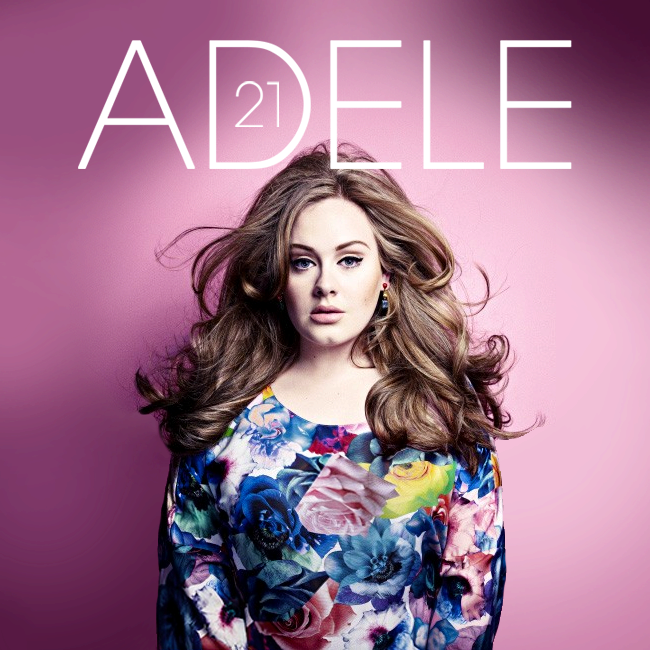Art-ivism: Women’s Rights
April 9, 2015
Thanks to contributions from the likes of Tina Fey, Amy Poehler and Ellen DeGeneres, among others, there’s been a surge in the number of female empowerment memoirs. Women empowerment plays are also becoming more prevalent, such as Vanessa Hudgens’ new Broadway show “Gigi,” demonstrating an increase in equal representation for women in the arts. While the arts are progressing, women still face challenges pertaining to body image stigmas and competition with their male counterparts.
New age feminism in ‘Gigi’
In the new production of Alan Jay Lerner and Frederick Loewe’s “Gigi,” Vanessa Hudgens makes her Broadway debut embodying female empowerment. Dramatist Heidi Thomas updated Colette’s original 1944 novella with adaptations that fit better today, including decreasing the age gap between Gigi and her love interest. The musical takes place in 1900 Paris, detailing Gigi’s journey to finding herself.
“Gigi” spans for two-and-a-half hours in two acts, with the cast including Corey Cott as the confident bachelor Gaston, Victoria Clark as Gigi’s cautious grandmother and Dee Hoty as the aggressive Aunt Alicia, demonstrating a strong, predominantly female, cast. “Gigi” features choreography by Joshua Bergasse, scenic design by Derek McLane and costume design by Catherine Zuber. The elaborate costume design spans from bold, exquisite gowns to white ties and suits. The costumes are attention-grabbing, lavish and formal, what is only swapped during one scene at the beach. Standout choreography numbers include “The Night They Invented Champagne,” which features Aunt Alicia, Gigi and Gaston enthusiastically performing after drinking champagne, which is a new experience for Gigi. Another notable number is “The Contract,” a humorous song during which Gigi’s guardians comically negotiate with lawyers on Gigi’s behalf.
With celebrity Broadway castings, debates typically occur over whether or not the celebrity can handle the stakes. In Gigi’s witty commentary and energetic personality, Hudgens unequivocally shines. Hudgens demonstrates her immense career growth, captivating audiences with a strong vocal power that is fit for Broadway, predominantly exemplified by “I Never Want To Go Home Again.”
Gigi and Gaston have an intriguing dynamic, constantly playing off their mercurial relationship through witty commentary. Gaston, as one of the most eligible bachelors, is used to having his pick of women. However, with Gigi, he is challenged upon realizing his true feelings for her, as she keeps Gaston on his toes by refusing to be just another one of his mistresses. During first scene of the second act Gigi conveys feminist ideals, pointing out to Gaston why his life is easier.
“Do you think life is easy for me, just because I’m wealthy?” Gaston said.
“I think it’s easy because you are a man,” Gigi said. “You can choose what you do. You have opportunities. I’ll find something I can do, but you can pursue your passions.”
“Gigi” depicts the story of a young girl in Paris finding her way and maturing, evinced by her etiquette lessons to learn how to become a woman, which she frequently mocks. More so, “Gigi” evokes themes of feminism and remaining true to oneself.
“Gaston, I could never be happy if I couldn’t be myself,” Gigi said.
Ultimately, Gigi refused to just be a prize for Gaston to win, well aware of the limitations women of her time faced, and determined to conquer them. While most women flocked to eligible bachelors because of their status, Gigi opposed that conventional wisdom. Instead, Gigi is a strong female character who is reluctant to give into mistreatment and prevailing opinions that she disagrees with, as she will only stand for obtaining what she desires.
A version of this article appeared in the Thursday, April 9 print edition. Email Alexa Spieler at aspieler@nyunews.com
Female comedian biographies spearhead feminism
It is no secret that comedy is no longer a man’s game. The book world is awash with autobiographies of beloved female comedians who are redefining what it means to be funny onstage and onscreen. Welcome to the era of the funny woman. With the likes of Tina Fey, Amy Poehler, Lena Dunham, Ellen DeGeneres,
Sarah Silverman and Mindy Kaling scribing their wisdom, it is time to reflect on why this trend is picking so much speed.
Perhaps it is because people want life advice from funny people, the kind of people whose views on life invigorate the mundane with levity and joy. Or maybe it is because society has always been intrigued by the inner workings of the female mind. Perhaps the strongest argument for this trend is society’s need for a canon of autobiographical origin stories where people redefine and actively change the norm.
Maybe an autobiography is less intriguing if it captures the life of someone abiding by an obvious path without making change. Shelves have long been stocked with stories of people fighting for change and deviating from the mainstream. Society needs these stories to act as a sort of Rosetta Stone for translating old behaviors into new norms. With this, society will be able to build a foundation for an equalized industry, using the female comedian books for catalyzing this change. In this case, that means that the funny women who have written their stories and marketed their wisdom are formulating a canon of works on which the future of comedy can rest. Recent collections exhibit the vulnerability of real, comedic women who are working towards a goal that defies the norms — Tina Fey’s “Bossypants,” Sarah Silverman’s “The Bedwetter” and Mindy Kaling’s “Is Everyone Hanging Out Without Me,” Ellen DeGeneres’ “Seriously … I’m Kidding” and Lena Dunham’s “Not That Kind Of Girl” all coming to mind. These books have the power to motivate anyone facing a hurdle to leave fear in their wake, to not take things too seriously, and to greet challenges as Amy Poehler would, with a resounding, “Yes Please.”
A version of this article appeared in the Thursday, April 9 print edition. Email Talia Kuhel at books@nyunews.com
‘Ghostbusters’ shows gender divide
In January, when the main cast members for the all-female “Ghostbusters” reboot were announced, many celebrated the small step forward in the ongoing battle for equal gender representation in the film industry. Featuring two well-established comedy stars, Melissa McCarthy and Kristen Wiig, as well as two rising talents, Leslie Jones and Kate McKinnon, the Paul Feig-directed film has potential to be not only a blockbuster and a loving homage to the 1980s smash. The movie will also be a heavy addition to the debate that Hollywood films can still generate high box office revenue while passing the Bechdel test, meaning that women are talking about something besides men. One gender-reversed franchise reboot might not magically fix everything, but in a world where only 30.9 percent of named characters are female and not a single nominee for Best Picture at this year’s Oscars featured a female lead, it is a small step in the right direction.
The celebration was short-lived, however, because then came the inevitable Internet backlash. The cries of ruined childhoods rose loudly to the forefront of the conversation about the project. Granted, this type of vitriol exists every time production begins on a remake of a beloved classic, but only a remake featuring women would receive so much ignorant, misogynistic abuse. A short time later, Sony announced plans for a standard remake of the original film featuring an all-male cast. It remains unclear whether the second announcement was a response to the backlash or whether the two counterparts had been developed separately. Regardless, creating both a male and a female version represents a twisted, misguided perspective on gender equality.
Sony has backtracked on the one progressive, clever choice in an where seemingly every successful franchise in film history is getting new additions, including how Marvel Cinematic Universe has sequels planned through 2019. What they have crafted instead is an inevitable competition between the two films. It is now unknown what message this will send to the rest of Hollywood, but and giving equal parts to men and women is paramount.
A version of this article appeared in the Thursday, April 9 print edition. Email Zach Martin at film@nyunews.com
Singers fight back against body shaming
Despite 2014 being the Year of the Booty, musicians are never free of body scrutiny. Nicki Minaj is frequently criticized for oversexualizing her assets, while Meghan Trainor has been slammed for being proud of her plus-sized figure. Both Minaj and Trainor have been accused of skinny shaming, as well. Adele and Kelly Clarkson recently drew criticism for their fuller pre- and post-pregnancy frames. The body shaming that occurs in the media is not female-exclusive — Sam Smith is often put down for not emulating the ideal muscular male body type, while Ed Sheeran’s weight loss after cutting back on drinking frequently made headlines.
Many musicians are fighting back on social media. For instance, Lady Gaga took to Twitter to comment on the ongoing controversy.
“I am proud at any size,” Gaga said following online chatter about her weight gain.
Demi Lovato, who underwent treatment for bulimia, also used the social media platform to comment on her weight criticism.
“I’m happy and healthy, and if you’re hating on my weight you obviously aren’t,” Lovato said.
Body positive songs have blown up the charts as well. Colbie Caillat video for “Try” shows women with natural hair and without make-up, proving prettiness is not dependent on primping. Trainor’s “All About that Bass” promotes the message that “every inch of you is perfect from the bottom to the top,” regardless of size. Both videos feature women who are beautiful without adhering to the traditional music video vamp standards of revealing outfits and highly sexualized dance moves.
The bottom line is that musicians are in the business to produce great music. Adele commented on the subject best.
“I don’t make music for eyes, I make music for ears,” Adele said.
A version of this article appeared in the Thursday, April 9 print edition. Email Rachel A.G. Gilman at music@nyunews.com



